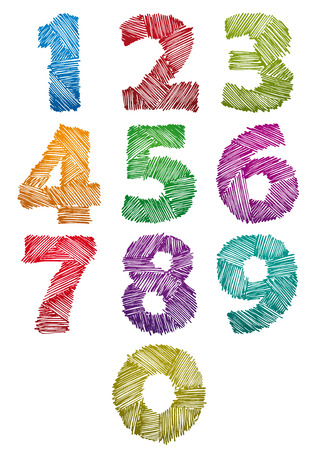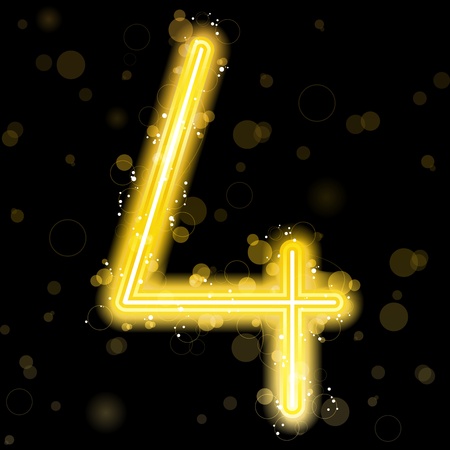1. Understanding Master Numbers in Numerology
In the world of numerology, certain numbers stand out for their extraordinary vibrational energy and potential—these are known as master numbers. The most prominent of these are 11, 22, and 33, often referred to as the “master numbers” due to the powerful spiritual significance they carry. Within the UK numerology community, there is a growing appreciation for these numbers and their unique attributes. Unlike regular single-digit numbers, master numbers are double digits made up of repeating figures, which amplifies their influence. British numerologists have long debated the best approach to recognising and interpreting these master numbers, with some practitioners placing particular emphasis on the rarity with which they appear in personal charts. In the UK context, master numbers are not simply seen as markers of luck or fate but are regarded as indicators of heightened responsibility, potential, and spiritual evolution. Understanding how these numbers are identified and interpreted within British numerology circles is key for anyone seeking a deeper connection to the mystical underpinnings of their personal number profile.
2. The Rarity of 11, 22, and 33 in British Birth Charts
When delving into the subject of master numbers in UK numerology, one cannot overlook just how uncommon 11, 22, and 33 are within British birth charts. Unlike more frequently encountered single-digit life path numbers, these double-digit master numbers appear with far less regularity among the population. To illustrate this rarity, it is helpful to consider both anecdotal evidence from local numerologists and available statistical observations.
In practical terms, many experienced numerologists across the UK report that only a small percentage of their clients present with a master number as their life path or key numerological indicator. This is not just a perception—calculations based on the possible combinations of birth dates confirm that master numbers emerge less often than their single-digit counterparts. Below is a simplified table showing an estimated distribution based on typical numerological calculations using UK demographic data:
| Life Path Number | Estimated Percentage in UK Population |
|---|---|
| 1-9 (Single Digits) | ~88% |
| 11 | ~4% |
| 22 | ~2% |
| 33 | <1% |
Anecdotally, some British numerology practitioners share stories of going months or even years without encountering a client who possesses a master number—particularly the elusive 33, which is sometimes referred to as the “Master Teacher” but is seldom seen in practice. This rarity contributes to the mystique and perceived significance of these numbers within the UK’s numerological community.

3. Cultural Attitudes towards Master Numbers in the UK
In the UK, attitudes towards numerology—and master numbers such as 11, 22, and 33—are shaped by a unique blend of scepticism and curiosity that is distinctively British. While spiritual and esoteric practices have a long-standing presence in British history, modern society often approaches such topics with a reserved pragmatism. This duality influences how master numbers are perceived and integrated into daily life across the country.
The British Sense of Pragmatism and Tradition
British culture tends to prize rationality and evidence-based thinking, which can sometimes place numerological concepts on the fringe of mainstream acceptance. However, there remains an undercurrent of fascination with symbolism, tradition, and hidden meanings—a legacy from folklore and mysticism that still finds expression in literature, architecture, and local customs. Master numbers are often viewed through this lens: intriguing but approached with a healthy dose of caution.
Master Numbers in Social Discourse
Discussions about master numbers in the UK typically occur within close-knit circles or among those with an established interest in alternative spirituality. Public conversations may be more subdued compared to countries where numerology enjoys wider popularity. Nevertheless, for those who resonate with these concepts, master numbers are seen as rare markers of potential and purpose—qualities that align well with traditional British values of perseverance and personal achievement.
Acceptance versus Scepticism
Acceptance of master numbers in British society often hinges on personal experience rather than collective belief. Individuals who identify strongly with the energies of 11, 22, or 33 may quietly integrate their significance into their lives without overtly broadcasting it. Scepticism remains common, yet there is also room for respectful exploration and dialogue, especially given the contemporary rise in interest toward wellness and holistic self-discovery practices.
The rarity and power attributed to master numbers thus occupy a subtle space in the UK’s cultural landscape: not fully mainstream, but not entirely dismissed either. As societal attitudes continue to evolve, so too does the openness towards exploring numerology as a tool for personal insight—always balanced by the enduring British inclination for thoughtful consideration.
4. The Unique Energies of 11, 22, and 33
Within the sphere of UK numerology, Master Numbers 11, 22, and 33 are often regarded as possessing extraordinary vibrations—qualities that set them apart from other numbers. These energies are not only discussed in numerological circles but have also filtered into broader British cultural interpretations, where the subtle influence of numbers is sometimes referenced in folklore and local spiritual communities. Let’s break down the distinct characteristics associated with each Master Number as understood by both traditional numerologists and those who draw upon British metaphysical heritage:
| Master Number | Key Qualities | UK-Centric Beliefs & Interpretations |
|---|---|---|
| 11 | Intuition, insight, inspiration, spiritual awareness | Often referred to as “the Illuminator” or “Messenger”, many in the UK see 11s as natural conduits for creative ideas and social progress. There is a local belief that individuals with this number may be drawn to causes involving community well-being or the arts, echoing Britain’s longstanding tradition of literary and humanitarian achievement. |
| 22 | Master builder, practicality combined with vision, manifesting large-scale goals | Known as “the Architect”, 22s are thought to possess the rare ability to turn dreams into reality. In British contexts, this energy is associated with the nation’s history of innovation—from engineering feats to social reforms—suggesting that 22s often leave tangible legacies. |
| 33 | Compassion, teaching, unconditional love, altruism | This number is sometimes labelled “the Master Teacher”. In the UK, it’s said that those influenced by 33 might naturally gravitate towards healing professions or education. There’s a gentle nod to the country’s charitable traditions and collective responsibility ethos when discussing the potential of a 33. |
The distinction between these energies is nuanced; while all Master Numbers are considered potent, each carries its own flavour. For example, 11s are believed to light the way for others through intuition and vision—qualities respected in British leadership and creative industries. Meanwhile, 22s embody a hands-on approach reminiscent of Britain’s legacy in architecture and infrastructure. Lastly, 33s echo values rooted in care and social service—a trait celebrated throughout UK society.
It is also locally acknowledged that living up to a Master Number can be both a gift and a challenge. Many British numerologists advise those with these numbers in their charts to embrace self-development and community engagement to fully realise their potential—a sentiment that resonates strongly within UK traditions of self-improvement and public contribution.
5. The Role of Master Numbers in Everyday British Life
In the UK, the influence of master numbers—11, 22, and 33—extends beyond theoretical numerology and finds practical expression in daily life. Many individuals who discover these numbers in their personal charts often feel a sense of responsibility or higher calling, which can subtly inform their choices. For instance, it is not uncommon for those with master numbers to consider them when making important decisions about career changes, moving cities, or starting new projects. British numerologists frequently advise clients to embrace the qualities associated with these numbers: vision and intuition for 11, pragmatic leadership for 22, and compassionate service for 33.
There is a growing trend in the UK where people seek guidance from numerologists before embarking on significant life transitions. From entrepreneurs launching start-ups in Manchester to teachers contemplating new qualifications in Edinburgh, master numbers are used as a framework to understand one’s strengths and challenges. Some believe that aligning with the energy of their master number can help unlock potential and foster resilience, especially during times of uncertainty.
Personal growth is another area where master numbers play a role. In British culture, there is often an emphasis on self-improvement and emotional intelligence; those aware of their master numbers may use this knowledge to set intentions or pursue specific goals. For example, someone with an 11 might focus on developing their creativity or spiritual awareness, while a 22 could channel efforts into community initiatives or business ventures. The rare 33s may find themselves drawn to volunteering or advocacy work, reflecting their natural inclination towards nurturing others.
It’s also worth noting that while some treat numerology with scepticism—a trait rather common in the British approach to alternative practices—there is an increasing openness among younger generations. University students in London might discuss life path numbers over coffee, viewing them as tools for self-reflection rather than strict destiny markers.
Ultimately, the application of master numbers in everyday British life remains highly individualised but undeniably present. Whether taken seriously or approached with a characteristic British sense of humour and curiosity, these powerful digits provide a unique lens through which people across the UK navigate choices and personal development.
6. Seeking Guidance: British Numerologists’ Approach
When it comes to understanding and harnessing the potential of master numbers 11, 22, and 33, UK-based numerologists adopt a nuanced and pragmatic approach. These practitioners are well aware that discovering a master number in one’s chart can be both exciting and daunting for clients. Rather than simply celebrating the rarity or supposed ‘luck’ of these numbers, British experts encourage a grounded perspective.
Personalised Consultations
UK numerologists often begin by contextualising the presence of master numbers within the client’s broader life path and experiences. They emphasise that while master numbers carry heightened energy and potential, they also bring added challenges and responsibilities. During consultations, practitioners focus on how these energies manifest in daily life, relationships, and career aspirations. Clients are encouraged to recognise both their unique strengths and the importance of self-care when navigating intense periods associated with master numbers.
Typical Advice Offered
The most common guidance revolves around balance and realistic expectations. Numerologists advise clients not to feel pressured by the perceived weight of having a master number—especially since popular culture can sometimes exaggerate their significance. Instead, individuals are supported in developing patience and resilience as they integrate the lessons of their master number over time. Practical steps such as mindfulness practices, journaling, and community involvement are frequently recommended to help channel the high vibration energy productively.
Addressing Common Misconceptions
A significant part of a British numerologist’s role is debunking myths. One misconception is that those with master numbers are destined for fame or greatness without effort; UK experts clarify that true mastery comes from sustained personal growth rather than instant achievement. Another prevalent misunderstanding is believing that master numbers make other aspects of a numerology chart irrelevant—on the contrary, practitioners highlight the importance of considering the entire chart for a holistic view.
Ultimately, British numerologists strive to empower clients by offering honest insights and practical strategies tailored to individual needs. Their approach blends respect for tradition with an open-minded attitude towards modern challenges, ensuring that those with master numbers receive support that is both meaningful and relevant within today’s UK context.


